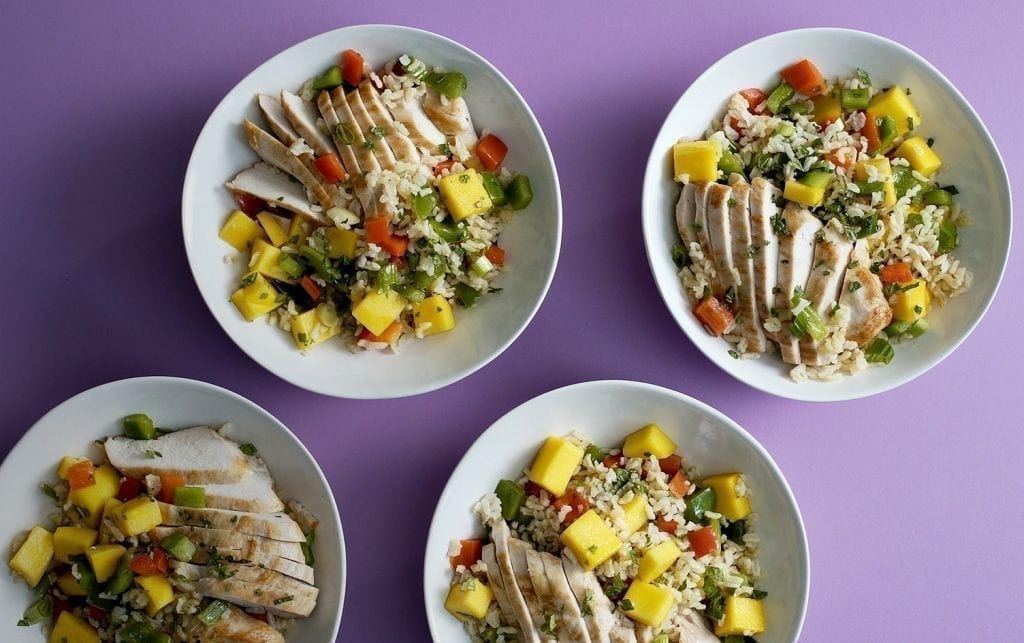For many people, one of the most exciting things about traveling is tasting the local cuisine. It’s normal to wonder how to eat healthy while traveling.
According to registered dietitian Emily Sullivan, balancing an annual splurge with a healthy lifestyle isn’t hard.
Before you pack, read these healthy snacking tips and ideas recommended by registered dietitians. This way, you can enjoy every minute of your vacation (including your meals) while still making choices that are good for your body.
Does traveling affect appetite?
So, does travel hunger exist? At least to some extent, that may be the case.
Some research suggests that active travel, such as hiking, biking, or other sports trips, may affect how hungry you feel.
Research also shows that people who are very active during the holidays tend to choose more fresh fruits and vegetables over processed foods or red meat to satisfy physical hunger and maintain energy levels.
Traveling across multiple time zones can cause jet lag, which research shows can affect not only your sleep but also your hunger signals.
Why do we eat more when we travel?
It’s not just physical hunger that makes you want to eat, especially when you’re out and about. “Some meals on vacation may have other purposes, such as trying new things or creating memories,” Sullivan says.
We might eat more to try new things, enjoy the moment, or just indulge. Eating more on vacation won’t affect your progress, especially if you eat nutritious meals and get some daily exercise throughout your trip.
You often encounter a greater variety of food when traveling than what you see at home. There are new restaurants, buffets and street food around every corner that you won’t find at home. Research shows that this increased variety may lead to eating more than usual.
“A big part of traveling and vacationing is going to new places and trying different foods and ingredients,” Sullivan says. Give yourself some grace while traveling by balancing physical activity and healthy choices while trying new things and pampering .
3 Tips on How to Eat Healthy While Traveling
Sullivan says you don’t need to stress about what to eat during the holidays to stay on track on your health journey.
One study suggests that following a stricter diet on weekends and holidays has little impact on maintaining weight loss long-term.
“We know that our health is affected by our nutrition and physical activity habits over the long term. So when you choose to enjoy foods during the holidays that you don’t often enjoy at home, let go of any guilt and enjoy the moment with friends or family ,” Sullivan said.
Here are three tips for eating healthy while traveling so you can enjoy your vacation while satisfying your mind, body, and soul!
1. Try to control portion sizes
The restaurant is notorious for its huge portions. Increased portion sizes have public health implications. They do make it difficult to know how much to eat at each meal.
You don’t have to eat all the food a restaurant has to offer to fully enjoy it.
interesting facts: One way to track your holiday intake is to log it with the MyFitnessPal app. You don’t have a food scale on the road, so use visual cues to give you your best guess at portion size.
Don’t stress if you exceed your usual calorie intake—you’re on vacation! Tracking can give you insight into your eating patterns and is a proven part of weight loss success.

2. Make sure to eat breakfast and stay active
For many people, a healthy breakfast is the right way to start the day, whether at home or while traveling.
A nutritious breakfast, especially one with some protein, can help you control hunger later in the day. Breakfast restores glucose in the body, boosts energy, and makes you feel more alert after a period of fasting.
Some healthy breakfast options you can find in many destinations include:
- Oatmeal with fruits and nuts
- Fruit, vegetable and yogurt smoothies
- Whole wheat toast with avocado and eggs or smoked salmon
Staying active during your trip, such as walking or biking, can also boost your energy levels because you’re doing something good for your body and mind. Regular activity, especially long-term activity, can help you fight off disease, improve your mental health, and maintain mobility.
3.Drink more water
Don’t forget to bring a water bottle on your next road trip! Drinking enough water every day has many health benefits, including aiding in weight loss. Drink water throughout the day, especially with meals, rather than sugary drinks or soda.
Water also helps you maintain healthy digestion, a common problem for many travelers.
interesting facts: You can easily track your water intake in the MyFitnessPal app!
Travel snacks recommended by nutritionists
The cinnamon rolls you ate out of stress at the airport won’t create memories or add fun to your trip. Eating healthy snacks on the go—whether you’re driving, on the train, or on a plane—is an easy way to eat well.
Sullivan has some suggestions for travel-friendly foods:
- An apple with cheese skewers
- Hummus and vegetables
- Mixed dried fruits and nuts
- Greek yogurt with berries and granola
- Peanut Butter Banana Sandwich on Whole Wheat Bread
With a blend of carbs, healthy fats and protein, these snacks give you the nutrients you need and help you stay satisfied until your next meal.
bottom line
A week or two off shouldn’t derail all of your health goals. So take the time to enjoy new or favorite foods while traveling and pay attention to the ones that are good for your body and mind.
Eat a healthy breakfast, move throughout the day, and enjoy the moment with family and friends.
Using the MyFitnessPal app while traveling can help you stick to your diet and nutrition goals, but don’t feel pressured if you indulge a little. you will return to your normal state

